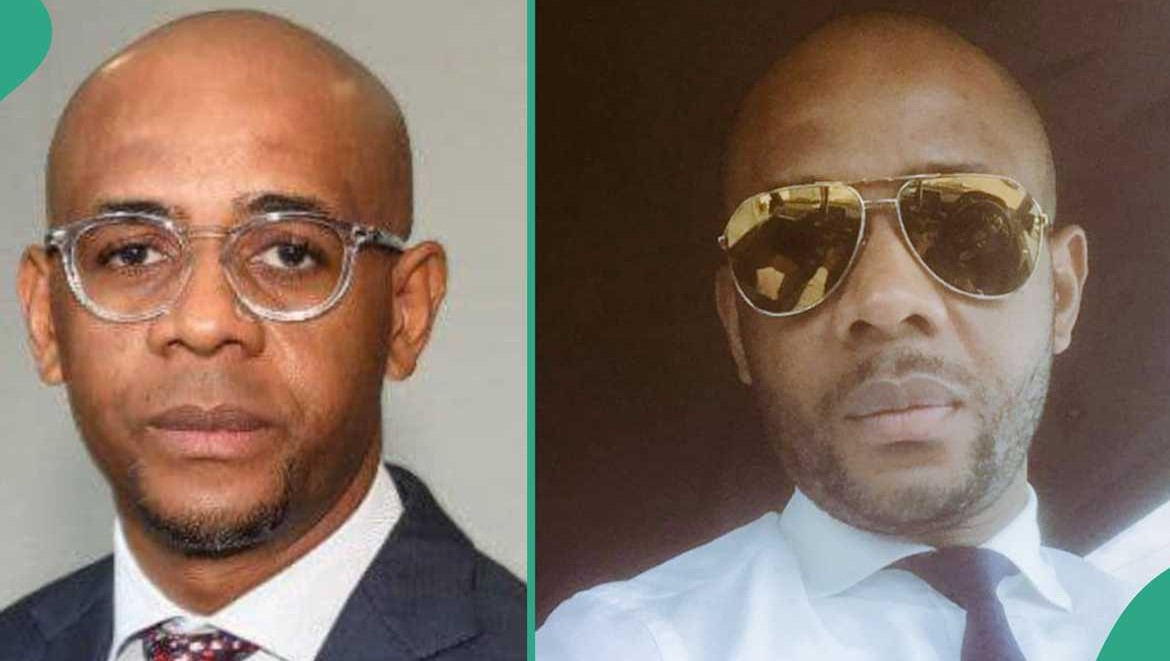Baltasar Ebang Engonga Video Scandal Explained
Baltasar Ebang Engonga currently serves as the Director General of the National Financial Investigation Agency (ANIF) in Equatorial Guinea, a key institution tasked with overseeing financial integrity and combating corruption within the nation. Renowned for his role in enhancing financial transparency, Ebang Engonga’s career has been marked by efforts to fortify the economic foundations of Equatorial Guinea through stringent oversight and regulation.

However, Ebang Engonga’s professional reputation faces a severe crisis. A shocking scandal has emerged, involving the discovery of hundreds of explicit videos on his office computer. These videos, allegedly featuring Ebang Engonga himself in compromising situations with various high-profile individuals, have ignited a media firestorm and public uproar. Among those reportedly appearing in the videos are his brother’s wife, his cousin, and even the sister of the President of Equatorial Guinea.
The existence of these videos was revealed inadvertently during a routine fraud investigation, casting a shadow over Ebang Engonga’s credibility and the integrity of the agency he leads. The content, found in his personal office and reportedly recorded with consent, includes scenes with multiple women, some of whom are married, thus intertwining personal indiscretions with potential breaches of professional conduct.
This scandal not only threatens to tarnish his tenure at ANIF but also poses significant questions about the ethical operations within higher echelons of Equatorial Guinea’s government. As the details unfold, the impact of this revelation continues to resonate, affecting public trust and the perceived moral fabric of the government administration.
Contents
Unfolding of the Scandal and Video Leak
The scandal surrounding Baltasar Ebang Engonga unraveled unexpectedly during an ongoing investigation into allegations of fraud within the government. Investigators stumbled upon an alarming array of explicit content when they accessed Engonga’s office computer as part of routine data retrieval. What they found was not just a handful of inappropriate files but over 300 videos that displayed not only Engonga but also various high-profile figures in encounters.
The Full Set of Uncensored Leaked Videos of Baltasar Ebang Engonga
baltasar-ebang-engonga-video-1.mp4
baltasar-ebang-engonga-video-2.mp4
baltasar-ebang-engonga-video-3.mp4
These videos, allegedly involving his brother’s wife, his cousin, and notably, the sister of the President of Equatorial Guinea, suggest not just moral lapses but also potential power dynamics being exploited. The presence of such videos on a government-owned computer, especially one belonging to the head of the national agency responsible for financial integrity, was both shocking and disillusioning.
Background of Baltasar Ebang Engonga
Baltasar Ebang Engonga holds the prestigious position of Director General at Equatorial Guinea’s National Financial Investigation Agency (ANIF), a role he has filled with both honor and distinction. His appointment to this critical role placed him at the forefront of the nation’s efforts to combat financial fraud and ensure transparency within public financial management systems. Engonga’s responsibilities are vast, encompassing the oversight of financial investigations and the implementation of measures designed to curb financial corruption across all sectors of the government.
Under his leadership, ANIF has taken significant strides towards enhancing the regulatory framework that governs financial activities, aiming to align Equatorial Guinea with international financial standards. His work often involves collaboration with other international bodies to foster practices that discourage corruption and promote a culture of transparency and accountability.
Impact and Reactions
The leak of these videos caused an immediate and widespread media frenzy. Public reaction was swift and overwhelmingly negative, with citizens and media outlets decrying the breach of ethical conduct expected of high-ranking officials. The scandal soon escalated beyond national borders, attracting international attention and criticism, thereby casting a shadow on the government’s ability to maintain a clean and accountable administration.
In response to the escalating situation, Equatorial Guinea’s Vice President, Teodoro Nguema, took to X (formerly Twitter) to express his disapproval and concern. His posts strongly condemned the inappropriate behaviors exhibited in the leaked videos and underscored the government’s stance against such conduct in the strongest terms. Nguema specifically highlighted the administration’s policy against relations within government offices, viewing them as contrary to the ethics required in public service. He warned of stringent measures, including disciplinary proceedings and possible dismissal for those found violating this policy.
Vice President Nguema’s public reprimand was a clear attempt to reassure the public and restore trust in the government. It emphasized that the government would not tolerate any actions that could undermine the integrity of public office. The swift condemnation also aimed to mitigate the impact on the government’s image and maintain the decorum expected in administrative workplaces. However, despite these efforts, the scandal has left an indelible mark on Baltasar Ebang Engonga’s career and posed serious questions about the effectiveness of the measures in place to prevent such incidents in the future.
Government Response and Measures
In light of the scandal involving Baltasar Ebang Engonga, the Vice President of Equatorial Guinea, Teodoro Nguema, announced a series of stringent measures aimed at preventing the recurrence of such incidents. Recognizing the potential damage to the government’s reputation and the need for immediate action, these controls focus on reinforcing ethical conduct and strengthening oversight within government offices.
The new measures include enhanced monitoring of computer usage within government departments, with strict access controls and regular audits. The installation of surveillance systems in administrative areas is being considered to ensure that all activities within these premises adhere to professional standards. Additionally, a new directive mandates thorough background checks and periodic ethical training for all government employees, emphasizing the importance of maintaining personal integrity in public service.
To enforce these rules, a zero-tolerance policy towards misconduct in government offices has been implemented. Violations will lead to immediate disciplinary actions, including suspension and potential dismissal. The government has also established a confidential reporting system to encourage employees to report any inappropriate behavior without fear of retaliation.
Personal Life
Baltasar Ebang Engonga’s personal life, until recently viewed as exemplary, reflected his commitment to family and conservative values. Married with six children, Engonga is known as a family man whose personal conduct, until the scandal, had never been publicly questioned. His role as a father and husband has been highlighted as part of his public persona, often illustrating his lectures on integrity with references to family values and responsibilities.
The scandal surrounding Baltasar Ebang Engonga has thrust into the spotlight not only his personal failings but also the challenges facing Equatorial Guinea’s government in enforcing ethical behavior among its ranks. This incident has revealed significant vulnerabilities in the government’s ability to police its own, undermining public trust and casting doubt on the effectiveness of existing regulations to curb corruption and misconduct.
The implications of this scandal extend beyond the immediate media uproar and public embarrassment. They pose serious questions about the integrity of those tasked with safeguarding the nation’s financial resources and regulatory frameworks. For a country striving to enhance its international standing and attract foreign investment, such breaches of trust and ethical lapses could deter potential partnerships and economic opportunities.
In the long term, this scandal could potentially reshape the political landscape of Equatorial Guinea. It underscores the need for more robust mechanisms to ensure accountability and transparency in government activities. Public demand for genuine reforms might increase, pushing for greater scrutiny of public officials and more stringent measures against corruption. The social climate, too, may see shifts as citizens’ tolerance for corruption wanes, possibly leading to greater civic engagement and demands for political reform.
Ultimately, the scandal involving Baltasar Ebang Engonga serves as a stark reminder of the ongoing struggle between maintaining personal integrity and the temptations that come with positions of power. How Equatorial Guinea navigates this crisis will be crucial in setting the precedent for how similar situations are handled in the future, potentially defining the ethical landscape of its governance for years to come.
Hot News -
